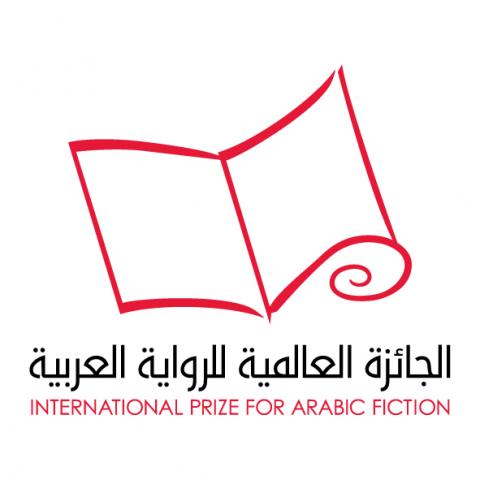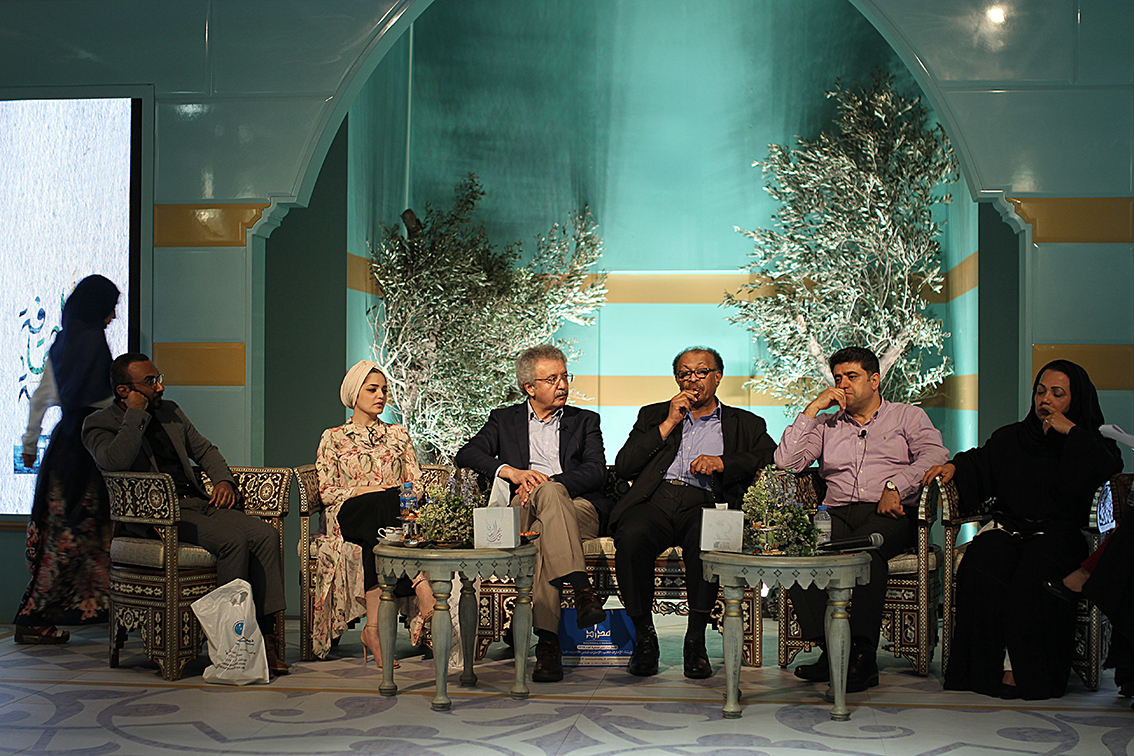Nasrallah: “I am against books as painkillers”
14/05/2018

The authors shortlisted for the International Prize for Arabic Fiction and Ibrahim Nasrallah, winner of the 2018 prize for The War of the Second Dog, took part in two events at the Abu Dhabi International Book Fair, organized in collaboration with book clubs Iqraa’ and Sea of Culture.
Ibrahim Nasrallah spoke about what prompted him to write his winning novel, explaining that it was intended to shake up the reader and make him or her to think deeply, adding that “I am against books as painkillers…. happiness is not a literary value.”
In answer to a question from the female readers of Iqraa’ about why most readers tend to be female and authors male, Nasrallah commented that this was an international phenomenon. For example, in France, 90% of readers are female, and he attributed this to the fact that women possess more hope than the “defeated male”, since “when you read, you are looking for hope or an outlet”, while Aziz Mohammed, author of The Critical Case of K, said he thought there were equal numbers of male and female readers in Saudi Arabia, and added that the formerly prevalent view of novels as trivial entertainment for bored housewives, was a patriarchal one.

© Khéridine Mabrouk / IPAF
Mohammed went on to explain how he came to write his debut novel, which was shortlisted for the prize. He had originally considered the short story as the highest fictional art, but the idea of this novel had taken shape gradually, beginning as the diary of an employee in an insurance office watching those around him. In the original concept, the employee was not the central character, nor was cancer a theme. The book’s title - literally “The Critical Case of the Man called K” and not just “K” – is because the central character imitates Kafka by writing a diary as Kakfa did and aims to be like him, but fails to realise this ambition. In the end he becomes like James Joyce instead who also travelled in search of new experiences.
At the Sea of Culture forum, held under the patronship of Sheikha Sheika bint Khalid Al Nahyan, Shahad Al Rawi referred to the huge divide there had been between readers of her shortlisted novel The Baghdad Clock, who had either loved or hated it. Asked whether she and her generation of young writers were preoccupied by the theme of memory, which is more usually found in older writers’ work, Al Rawi confirmed that she was afraid of the disappearance of the past. In her novel, she had tried to preserve memories of youthful moments, with all their dreams, illusions, and imagination, adding that “everything we do not know is the future, even if it is in the past”.

© Khéridine Mabrouk / IPAF
On the theme of present and future, Ibrahim Nasallah said that he had written his novel about a future which is near, not a distant one. The Second War of the Dog is a contemplation of the inner life of human beings and what they are capable of: “Human beings are still infatuated with the number of those they can kill…they never learn”. In the same context, Amir Tag Elsir agreed that “Human beings have developed tools of evil” since the beginning of history until now, and he explained that his novel Flowers in Flames follows the fate of women in a city destroyed by extremists, whilst his previous novel The Copt’s Worries had focused on the men of the city. This latter novel, published in 2009, had prophesied the troubled times which were to come, including cities being laid waste by radical forces.
Walid Shurafa, author of Heir of the Tombstones, expressed his view that Palestinians are “heirs of the trauma” and still carry the pain of memory, even those who have left Palestine and live a comfortable life in another place. His character, Al-Wahid, lives in his imagination and not in reality.
